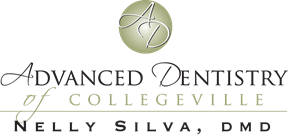Nutrition and Oral Health Recommendations for Children
Children are the jewels of our eyes, and it’s our number one priority to keep them happy and healthy. It has been reported that the number of children that have missed school days due to dental pain has been on the rise this decade in comparison to the past decades. It has been mainly linked to the change in lifestyle and the type of diet consumed as well as oral hygiene practices.
Dental decay is a simple equation of multiple servings of sugar + bacteria in your mouth – hygiene = decay.
multiple servings of sugar + bacteria in your mouth – hygiene = decay
Children who consume several servings of refined sugars per day and receive no oral hygiene or are brushing unsupervised by their parents are more likely to develop decay.
There are so many sources of sugars in our diet, this is why it is very important to develop a practice of reading labels on food and beverages to be aware of the presence of sugar in what your child is consuming. Always choose options that are low in added sugars in foods and choose hydrating water over other sugary beverages that have no nutritional value. Common sources of sugar are soft drinks, fruit drinks, candies, Lolli pops, cakes, and cookies. Other hidden sources of sugar are over-the-counter medicines such as analgesics and gummy vitamins where large amounts of corn syrups are added to make them more palatable to children. Another source of sugar is milk – cow’s milk, formula milk or breast milk.
It has been very common to have toddlers visit my office at two years of age or even younger and present with full set of badly decayed primary teeth. Such children are victims of nighttime nursing or bottle feeding and having no or minimal oral hygiene. When the baby sleeps while he is nursing or bottle feeding the teeth are pooled in sugar from the milk all night long. The bacteria in the mouth will have enough time to start the fermentation process that decays the teeth.
Hence, these children develop very fast progressing tooth decay that more often starts to be painful at a very early age and requires comprehensive dental treatments.
On the other hand, school aged children are suffering from dental decay due to mostly high consumption of processed sugars. At nurseries or schools that have little or no control over sugar consumption, children may be bring unhealthy snacks in their lunch boxes. And due to peer pressure, some children may uptake unhealthy feeding habits and may for the very first time have a sugary snack from a friend at school. Also, a misconception among many parents is that “organic lollipops” they are safe and healthy. Organic means the sugar was planted without any pesticides or genetically engineered grains, but still sugar is sugar! Bacteria in the mouth maybe happier to consume organic sugar but will still cause decay to the teeth.
Another misconception revolves around fruit juices which most parents consider to be a healthy beverage as it is made from natural fruit. A June 2017 recommendation of the Committee on Nutrition of the American Academy of Pediatrics (AAP) has reconfirmed that 100 percent juice and juice drinks have no essential role in a healthy diet for children and contribute to excessive calorie intake and risk of dental caries in children. Hence, juices should not be introduced to infants before one year of age. **
Juices should not be introduced to infants before one year of age.
So, help your child develop healthy feeding habits and make healthy food choices even when he or she are on their own like in the school or with friends.
The American Academy of Pediatric Dentistry advocates to reduce the consumption of sugar to less than 10 percent of total energy intake. To reduce children’s risk of weight gain and dental caries, sugar intake should be less than five percent of total energy intake (less than 16 grams of sugar for children aged 4-8.*
Recommendations
- Always choose healthy snacks as cheese, nuts, fruits and vegetables over candies and pastries.
- Choose whole fruit over fruit juice.
- Intake of juice should be limited to four ounces a day for children ages 1–3 years of age; 4–6 ounces for children 4–6 years of age; eight ounces for children 7-18 years. *
- Toddlers should not be given juice in containers that foster easy consumption; and toddlers should not be given juice at bedtime. As a general rule, water is the ideal beverage. *
- Brush your child’s teeth two to three times a day as soon as his first tooth erupts with age-appropriate toothbrush and use fluoride toothpaste starting with rice grain amount for children 0 -2 years of age, pea-sized amount for children 3-6 years and 1-2 cm for children above 6 years. Keep brushing your child’s teeth until 8 years of age then supervise only when they develop the appropriate motor skills for a thorough brushing.
- Visit the dentist as soon as your child develops his first tooth or as late as his first birthday. The dentist will guide you in this first visit to the appropriate dietary habits, oral hygiene, milestones as well as dental caries prevention. Call us today at 610-489-5555 to schedule an appointment







